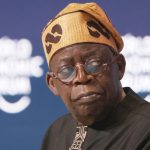The old Port Harcourt Refinery will now start producing in August 2024, according to a new schedule announced by the Nigerian National Petroleum Company Limited (NNPCL) on Monday.
It further stated that the Kaduna refinery will be operational by December of the same year, and that the Warri and refineries in Port Harcourt would follow suit.
This was said by the oil company’s Group Chief Executive Officer (CEO), Mr. Mele Kyari, in Abuja during an urgent meeting with the Joint Senate and House of Representatives Committees on Finance regarding the status of the economy.
Kyari and Sen. Heineken Lokpobiri, the Minister of State for Petroleum Resources, told the lawmakers that the nation was almost at the goal of producing two million barrels of crude oil per day.
Kyari, who maintained that Nigeria would be “a net exporter” of gasoline by the end of the year, particularly with the Dangote Refinery coming online, attributed the Port Harcourt refinery’s failure to meet the earlier deadlines to unanticipated difficulties typically associated with the “technical completion” of rehabilitation procedures.
He said, “Let me explain this very clearly. We did have mechanical completion of the Port Harcourt refinery, which means that every technical work that is required to get the refinery on to work has been completed. This is what we announced December last year, if you recall.
“Once you are mechanically completed for an existing refinery, even for new ones, there are a number of technical steps that you have to take when you are introducing hydrocarbons into this plant. It is only then that you will see the real challenges of even a new refinery. And I can confirm to you today that we have gone through this.
“We are already introducing hydrocarbons under a hot situation, that’s what we call it. And I’m very sure that by the latest, early August, the Port Harcourt refinery will start production.
“And of course, the new one will get to December. And Warri will also be in production. I’m very optimistic.
“I don’t have any confirmation at this moment, so that nobody quotes me and says, oh, you keep lying. No, we’re not lying to you; this is a technical process.”
Sen. Atiku Bagudu, the Minister of Budget and Economic Planning, and Mr. Wale Edun, the Coordinating Minister of the Economy and Minister of Finance, were among those present at the emergency meeting, which was presided over by Sen. Sani Musa (APC, Niger-East).
Even though the policies implemented by President Bola Tinubu’s administration were harsh on the populace, all of the government’s top officials professed faith in them and noted that there had already been indications of improvement.
For example, Bagudu informed the assembly that the government’s pledge on student loans had materialized, and that its energy shift to Compressed Natural Gas (CNG) was being executed as a less expensive substitute for gasoline.
Sen. Musa, on his part, stated that the National Assembly was keeping a careful eye on the policies put out by the administration and that members believed that the nation will eventually stabilize.
He claims that economic statistics point to a “doing well” national economy.
“He explained, “You can see the indicators are showing that the economy is doing well. The only thing is that things are a bit difficult because it’s not easy for inflation that has gone up to go down like that. It takes time.
“There are some indices, there are some indicators that have to work together. It’s not like having positive and negative cables. When you put the two together, you will achieve what you want to achieve.




